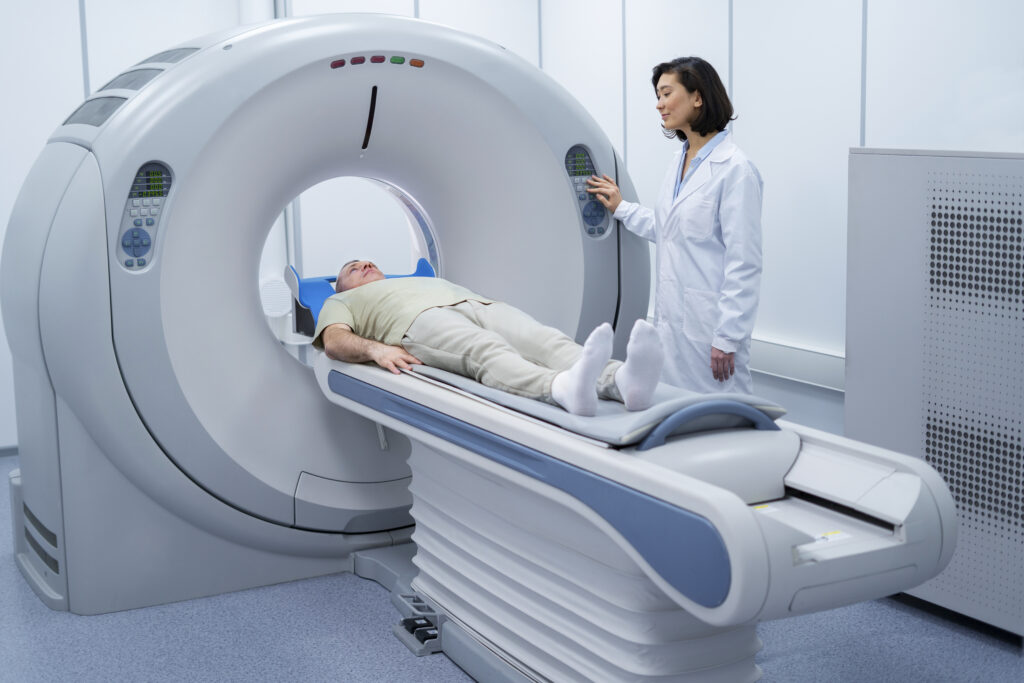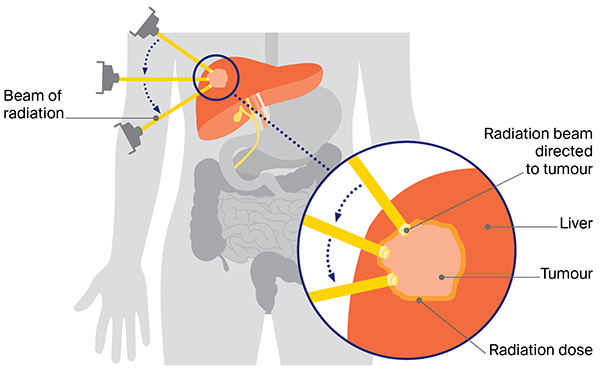

Revolutionary Minimally Invasive Procedure for Effective Cancer Care
Book Appointment

What are Cancer Advanced Treatment?
In cancer advanced treatment, advances in medical science and technology have paved the way for more effective and personalized approaches to combating this dreaded disease. Among the leading experts in the field, Dr. M. Bhavani Shankar is at the forefront of cancer advanced treatment. Through his extensive experience, dedication and commitment to improving patient outcomes, he has earned a reputation as a pioneer in the fight against cancer. And embolization has become a widely accepted and indispensable tool in the overall management of various types of cancer.

Our Expertise in Comprehensive Cancer Management
At the Vascular and Interventions Clinic, we have a dedicated team of interventional radiologists and oncology specialists experienced in embolization procedures. With advanced techniques and state-of-the-art equipment, we deliver personalized and effective embolization treatments tailored to each patient’s unique needs.
Why Choose Embolization for Cancer Treatment?
Minimally Invasive
Embolization is a minimally invasive procedure, offering significant benefits over traditional surgical approaches. It involves blocking tumor-feeding blood vessels, effectively cutting off the blood supply to the tumor and impeding its growth.
Revolutionizing Cancer Care
Embolization has revolutionized the field of cancer treatment, especially in scenarios where surgery may not be an option. It offers new possibilities for liver cancer, renal cell carcinoma, lung cancer, bone cancer, prostate cancer, neuroendocrine tumors, and more.
Radioembolization
Radioembolization is a targeted treatment for liver cancer that delivers high doses of radiation directly to the tumor using tiny radioactive beads.
Micro Ablation for Liver Cancer
Micro ablation for liver cancer involves the use of minimally invasive techniques to target and destroy cancerous cells in the liver. This can be achieved through methods such as radiofrequency ablation or microwave ablation, which deliver heat energy to the tumor, causing its destruction.
Radio Frequency Ablation
Radiofrequency ablation (RFA) is a minimally invasive procedure used to treat liver cancer. A thin needle is inserted into the tumor, and high-frequency electrical currents are passed through it, generating heat. This heat destroys the cancerous cells, while sparing healthy liver tissue, offering a potential curative treatment option.
Liver Cancer Treatment
Embolization has emerged as a primary treatment option for liver cancer, particularly when surgical intervention is not feasible. It effectively targets and blocks blood vessels feeding the tumor, reducing its size and improving patient outcomes.
Inoperable Tumors Made Operable
Embolization plays a pivotal role in treating renal cell carcinoma, rendering previously inoperable tumors operable. By cutting off the blood supply to the tumor, embolization helps shrink the tumor and facilitates surgical removal.
Palliative Relief for Lung Cancer
For patients with lung cancer, embolization provides palliative relief by controlling bleeding and reducing pain. This minimally invasive procedure offers improved quality of life and increased comfort for those battling lung cancer.
Take Control of Your Cancer Treatment
Experience the transformative power of embolization in cancer care. Don’t let cancer define your journey. Explore the possibilities and regain hope. Contact our clinic today and discover how embolization can revolutionize your cancer treatment.
Call Now For Quick Appointment
FAQ's
Embolization is a medical procedure where small particles or substances are injected into blood vessels to block or reduce blood flow to cancerous tumors. This helps to treat or shrink tumors by cutting off their blood supply.
During embolization, tiny particles or a gel-like substance is introduced into the blood vessels leading to the tumor. This blocks blood flow, depriving the cancer cells of nutrients and oxygen, thereby hindering their growth.
Embolization can be used in various types of cancers, including liver cancer, kidney cancer, and certain types of tumors in the lungs. It is often considered when surgery is not a viable option.
Embolization is typically used as part of a comprehensive treatment plan. It may be employed before surgery to shrink tumors, after surgery to prevent blood loss, or in combination with other therapies like radiation or chemotherapy.
Common side effects may include pain, fever, and nausea. Serious complications are rare but may include damage to surrounding organs or tissues. Your medical team will discuss potential risks and benefits with you.
Depending on the type and stage of cancer, alternatives may include surgery, radiation therapy, chemotherapy, or a combination of these. Your oncologist will discuss the most suitable treatment plan for your specific situation.
The procedure is usually done under local anesthesia, and patients may experience some discomfort or pain. However, pain management measures are typically in place to ensure comfort during and after the procedure.
Recovery time varies from person to person, but most individuals can resume normal activities within a week. Your healthcare team will provide specific guidance based on your condition
Follow-up care may include imaging tests to assess the response of the tumor to embolization. Your medical team will monitor your progress and make any necessary adjustments to your treatment plan.
